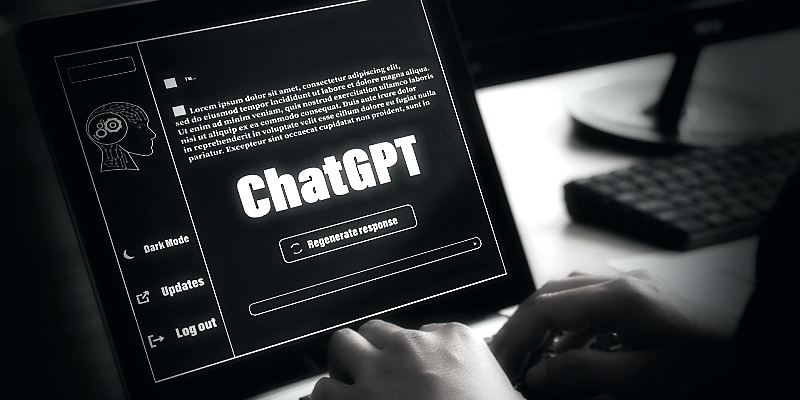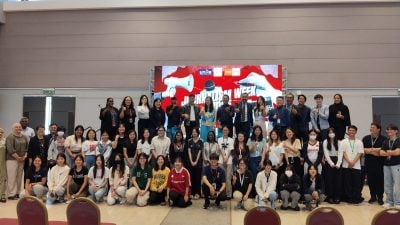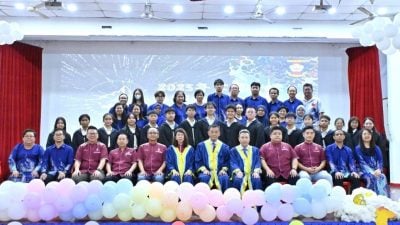The era of closer AI-human integration will sooner or later arrive, but what we never expected is that it has come a little early while the humans have yet to prepare themselves for the shift.
ChatGPT, an artificial intelligence chatbot developed by OpenAI, was launched on November 30 last year. Within less than a hundred days, “artificial intelligence chatbot” has become a new battleground for the perpetual rivalry between global technology giants (Microsoft, Google and Meta) and the technology industries of the United States and China.
Currently, the principal function of ChatGPT is just to chat with the users through text (or voice) and provide a diverse range of question-and-answer services.
Nevertheless, it has become insanely popular, with over 100 million heavy users within just two months.
Therefore, Google and Meta instantly challenged Microsoft-backed OpenAI on the back of their enormous databases of textual information, the ability to manipulate complex models, and the computational efficiency of supercomputers. Developing chat applications with similar or even superior functionality to ChatGPT is therefore not a major problem for them.
In early February, Google launched the LaMDA-supported Bard, an AI chatbot with similar conversational abilities to ChatGPT. However, it did badly during the first few days, with answering abilities significantly inferior to ChatGPT, leading to over 7% plunge in the after-hours stock price of Google’s parent company Alphabet on February 8. But given the strength of the Google team, it is just a matter of time before they turn things around.
Despite Google’s setback, Meta founder Mark Zuckerberg revealed in a Facebook post that the company was putting up a new top-tier product team focusing on the research and development of generative artificial intelligence, and emphasizing the construction of artificial intelligence roles that can “solve human needs in various ways.”
China is not prepared to stay away from this “artificial intelligence chatbot” warfare. In February, Baidu, the world’s leading Chinese language search engine, confirmed its entry into the fray with a “ChatGPT-like chatbot” called “Wenxin Yiyuan,” or ERNIE Bot in English.
Additionally, Chinese start-up YuanYu.AI launched ChatYuan to take on ChatGPT. On February 3, it announced that its functional dialogue model API had been online, but its WeChat mini program stumbled and could not launch, but at least it has put itself in the battlefield.

We can perhaps explain the phenomenon this way: American and Chinese technology giants, including Microsoft, Google, Meta, Baidu, and the like, absolutely have the ability to launch ChatGPT-like (even surpassing) AI chatbots in a short time, leveraging on their “accumulated massive text databases, complex models, and supercomputer computing efficiency.” Yes, the development of ChatGPT-like chatbots has officially entered the Warring States period!
These “artificial intelligence chatbots” have become so immensely popular because they possess simple logical analysis ability, can write programs, generate convincing text (such as theses and business proposals), generate life-like images, artistic drawings, musical works, movie scripts, and students’ homework and theses, and have truly met basic human needs!
As if that’s not enough, they are able to learn new things, and grow and mature through training or back-end databases which accumulate text, data and images over time, promising unlimited future prospects!
We have attempted to chat with ChatGPT, and although it has just been released for a few months, it is able to write medium-level programs, proposals, review articles, translations, and answer some rather tough scientific and historical questions.
Well-known Chinese YouTuber Li Yongle tested ChatGPT last week on the 2022 college entrance examination questions, and the average score was above 70 points, which is good enough to get admitted into an above average university in China!
If ChatGPT is trainable and can amass new knowledge, then within a year, it will be able to make it to the esteemed Peking University or Tsinghua University!
In 2014, Google UK’s subsidiary DeepMind developed the AlphaGo AI Go-playing program named which defeated a professional human player in October 2015, and beat five of the world’s top Go players 3-0 in May 2017. ChatGPT and the other AI chatbots that are expected join the game in near future will most positively be able to duplicate AlphaGo’s success.
On February 7, Microsoft launched Bing AI through its collaboration with OpenAI, which has been promoted as the next-generation OpenAI language model more powerful than ChatGPT with customizable search functionalities.
If AI chatbots can be taught and can accumulate knowledge, whether it may be exploited for malicious purposes depends very much on the source of data retrieved.
Someone tested a political question related to the Sino-American relationship in both English and Chinese, and obtained very different answers! You might have guessed it: the sources of information used by the chatbot were different (English information from the United States and Chinese information from China).
When the sources are themselves biased, sure enough the answers provided will also be biased.
The era of closer AI-human integration will sooner or later arrive, but what we never expected is that it has come a little early while the humans have yet to prepare themselves for the shift.
ADVERTISEMENT
ADVERTISEMENT








































